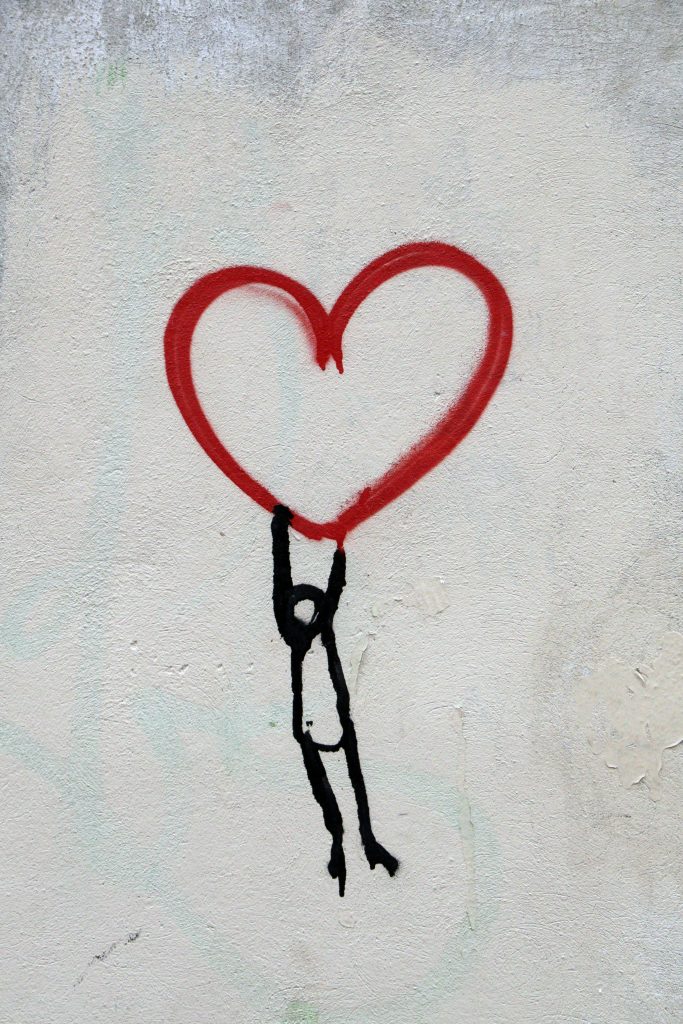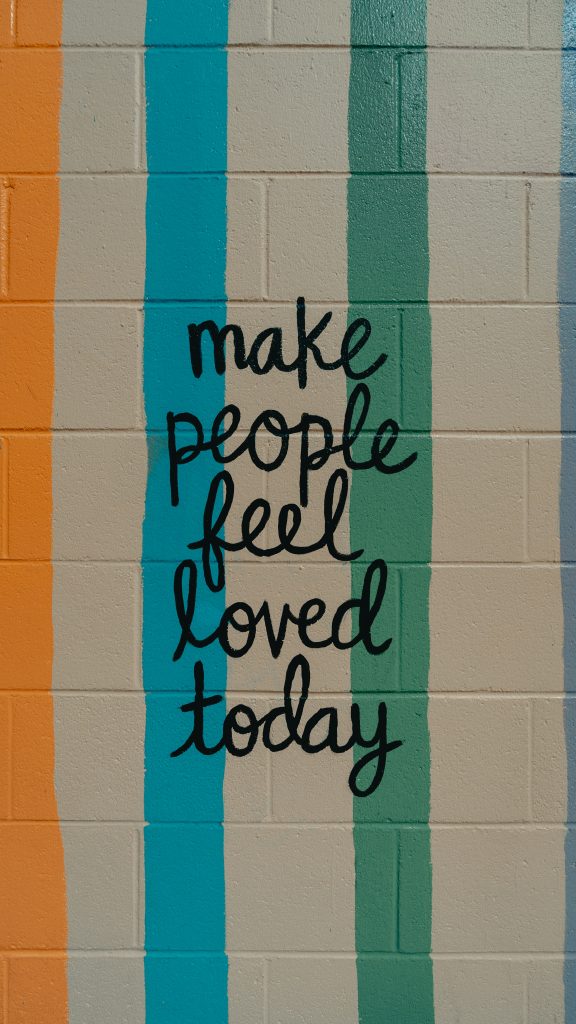
I’ve identified as an empath for a while now. The first time someone mentioned the term to me, it resonated. It felt like something just clicked into place. Suddenly there was a reason for some behaviours that confused me. That made me feel different. Being an empath is the ability to feel with people. Perhaps you’re the person who people tend to turn to when they’re struggling. Or your the one who spots it first and decides to check in with them. Your ability to empathize allows you to put yourself in their shoes – as much as is humanely possible.
Being an empath can be a covetable skill. Empathy is hugely in demand in this high stress world we inhabit. And we can all do it. But those of us with empathy embedded in who we are may have the upper hand on this occasion. Empathy is as much as a superpower or skill as being highly motivated, confident or well-spoken. And yet, it’s not valued as much. Or even, adults and children who are empaths may be derided as overly sensitive. Whilst the knock on effect of empathy can take a toll on our mental health.
For The Crucial Difference Between Sympathy and Empathy read here.
What’s an Empath?
Perhaps the most central aspect of an empath is the awareness of the emotions around them. You may be able to feel a certain vibe in the room. Or sense how someone or a group may be feeling even when it isn’t obvious. Put simply, you’re reading the emotions in the room, perhaps through the behaviour or body language of the people present. When detecting these emotions, empaths begin to feel them to. Have you supported someone and left feeling exhausted? And as if you’ve soaked up some of the emotions being shared? That’s your empath skill coming in to play.
Because of your ability to detect emotion, you’re probably also able to understand where people are coming from. You may find that sometimes you can find the words for people when they’re finding it hard to express them themselves. Or you can guess what someone is finding hard about a situation before they tell you. The empathy you express draws people to you. People feel calmer when they speak to you and like they’ve been heard. You understand them.
The feelings or situations don’t have to be real either. You may hear a song or see something on TV or film which is highly emotive. Just seeing or hearing the emotion may cause you to experience it yourself or imagine what it is like to feel that way too. Being an empath can mean you’re someone people want to be around and it’s likely that you have kindness in abundance. Unable to turn away from a friend or stranger in needs. But there can be downsides to this too.
When Empathy Goes Too Far
Finding the Line

As an empath, your empathy is your gift to the world. And it’s a wonderful gift to share. It can bring a great deal of comfort to those in pain. Helping people feel less alone and understood. And yet, when you have empathy to give it’s hard to fine the line of when to stop. Empaths tend to need to help those around them. Leaving little time to look after ourselves. If this sounds familiar to you, then it’s important to consider your personal boundaries. Where or when is the line when you don’t jump to help someone or go the extra mile? At what point may you need to be less involved in someone else’s troubles to look after your own concerns? Dialling back on the empathy can be difficult, or even make you feel selfish. But when you’re looking after yourself, you’re better placed to help others.
For The 9 Tips You Need to Hold Boundaries read here.
Reset the Batteries
You may feel emotionally pummelled and times. Like you’re jumping from one emotion to another. And processing emotions can be exhausting in itself. Add on the likelihood that people are turning to you for support and advice. And it’s no wonder you may feel drained and in need of a re-charge or reset. That’s when those boundaries come into play again. It’s important to carve out time for self-care. Like machines whose batteries need changing or need to be charged. So do we as humans. Our resources aren’t infinite.
Empaths are likely to find being in large groups or crowds tiring and even overwhelming. It’s partly due to the different emotions that they’re picking up. But empaths are likely to be sensitive people, those that find loud noises, bright lights and lots of movement incredibly stimulating. Again, if this sounds like you, think about how you’re spending that much needed downtime. Empaths tend to enjoy being in the calmness of nature and needing to step away from other people to have some alone time. Self-care can be done with others, socializing with friends and/or family or taking part in communal groups or activities. These are great and have there place. But consider how you may spend some time alone which can provide some much needed separation from the stimulation we’re often subjected too.
For A Guide to Empathy Fatigue read here.
Always Listen First

Lastly, we need to be careful with how we use our empathy. It can be a phenomenal skill in supporting people. We provide a huge amount of emotional care when we listen to others and provide an empathetic response. But, if we’re not careful, our empathy can take over. Because we pick up on feelings and can imagine how difficult things may be for people. We may jump in too quickly and not give the person we’re supporting time to find the words to explain how we’re feeling. It’s important to remember that even if we think we know what they’re trying to say. It’s imperative to give them the time to share their thoughts and feelings themselves. This can take time and people sometimes need to process first. If we jump in, even though we’re being helpful, we deprive the person of that time to process.
For A Guide to Prioritizing Self Care read here.
Remember empathy is an important skill. And empaths should be valued for the value they bring to daily interactions with people or in groups. As well as the one to one support they can offer. But often it is undervalued or viewed negatively as we don’t value emotions as the important indicator of our thoughts and feelings that they are. As an empath, remember how incredible you natural ability to provide empathy is. But safeguard it by looking after yourself too.
Do you identify with being an empath? Have you found it a positive or negative thing? Do you think we value empathy as a skill enough? Let us know below!

Wow. I loved reading this and I could relate to a good amount of this piece. While I haven’t really sat down to ask myself if I would love to identify as an empath or not, I feel like there’s nothing wrong with being an empath.
I don’t think we have to define ourselves one way or another. But I think it’s interesting and can help explain some behaviours which might make us feel like an outsider or underappreciated at times x
I’m a weird kind of empath, I can feel literal physical pain when I see others get hurt or I see them suffering, but emotions I struggle with because of my attachment issues and BPD
That’s a really interesting perspective that I haven’t heard before. Thank you so much for sharing it x
This is such an informative post. After reading this, I would definitely say I’m an empath.
Thanks Kelly! Join the club 🙂
Lovely to meet another Empath – this post is so great and packed with great information! Being an empath can be so draining (and so quickly in today’s age) so for myself boundaries are my number 1 with ensuring I have enough energy and provided time to recover. Thanks for sharing.
Agreed. I definitely have to watch those boundaries! I hadn’t thought about how much more draining it might be in this day and age so that’s interesting too!
Discovering I was an empath was such a relief, I was no longer too sensitive, I was empathic. Hopefully others will read this and learn that they are not too sensitive, that they are empaths and that it is a great gift. Thanks for sharing!
Thanks Tiffany. I agree, not everyone appreciates our sensitivity and how it makes us a very supportive person to have around. But we still label kids or women as ‘too sensitive’ as if it’s a bad thing.
I would say I’m an empath and have struggled with it sometimes. It can be both a blessing and a burden but I wouldn’t change it. Thanks for sharing all this info, it’s helped me appreciate it and all it’s complexities.
Thanks Molly! I would say the same. It definitely have its benefits and its drawbacks
This was really cool to read about. I feel like sometimes I can be very empathetic and these are the exact emotions I feel that you managed to put into words. I do like to take breaks from that and set boundaries though just for the sake of my own mental health.